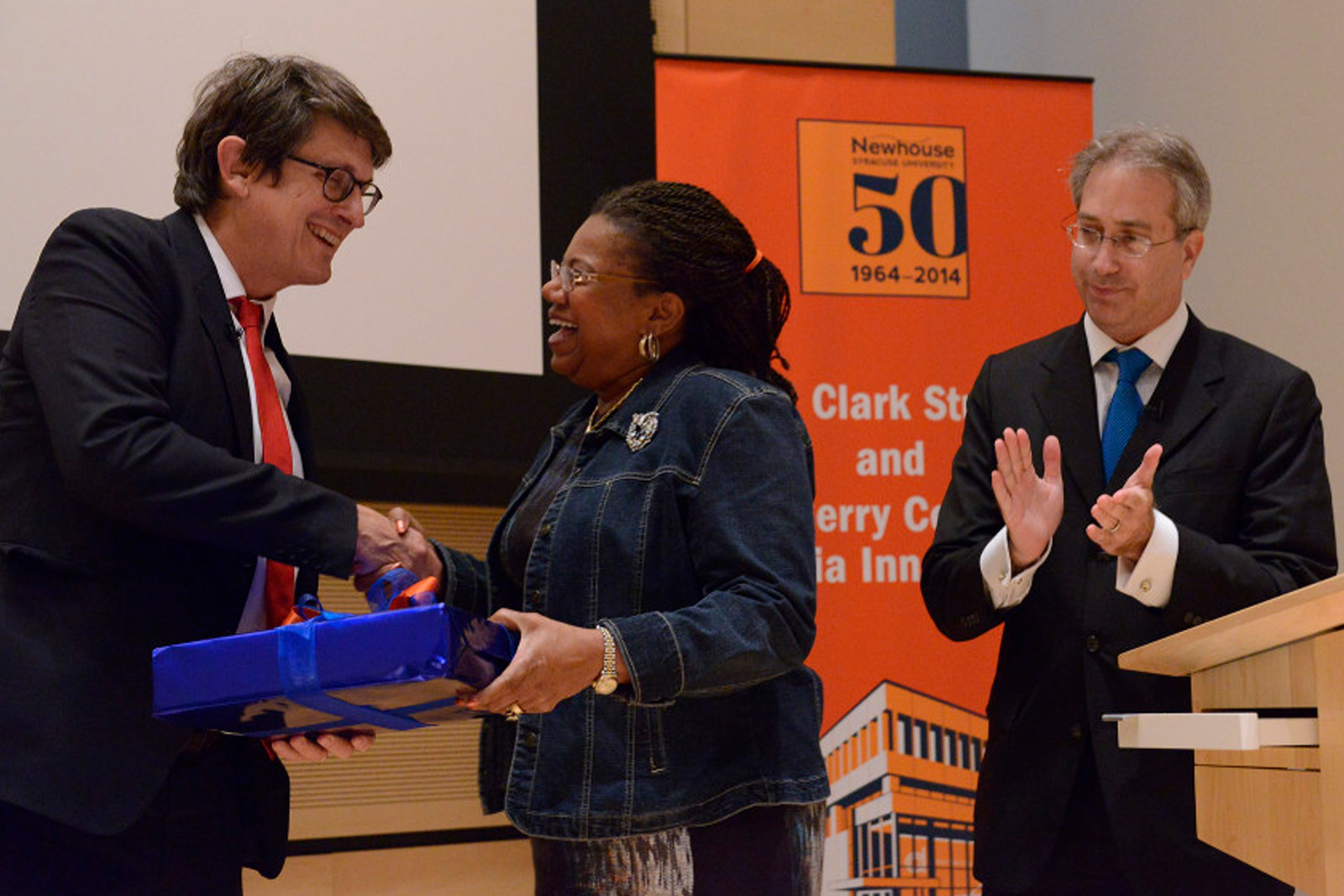Alan Rusbridger, editor-in-chief of The Guardian, wins Tully Free Speech Award

On Wednesday October 1 at the Newhouse School, editor-in-chief of The Guardian, Alan Rusbridger, was awarded the 2014 Tully Award for Free Speech for breaking one of last year’s biggest news stories.
Rusbridger is responsible for publishing reports from whistleblower Edward Snowden, a former National Security Agency contractor who leaked thousands of classified documents, which included details of American surveillance operations.
More than 100 people attended the event on Wednesday in the Joyce Hergenhan Auditorium at Newhouse. At the event, Rusbridger discussed issues concerning censorship and freedom of speech, touching on the differences between British and American culture.
“The words that are inscribed on this building mean something here, and it’s internalized in American life,” says Rusbridger, referring to the first amendment, which is on many of the walls of Newhouse 3.
Unfortunately, the American first amendment stands in stark contrast to the legal actions Rusbridger has endured from the British state, he says. The government there ordered for the destruction of the computers and hard drives that contained the leaked Snowden data.
In a sort of rebellion, Rusbridger says, he and his colleagues destroyed the computers themselves. And they filmed it, all while British intelligence agents watched, Rusbridger says.
“It was all very British,” Rusbridger jokes. “It’s an art, smashing up a computer.”
Watch video of Rusbridger and colleagues destroying computers>>
Rusbridger spent much of his time Wednesday night discussing government censorship.
“I think anybody can understand that the extraordinary intrusive powers that the state has, has a great potential for evil,” Rusbridger says. “Does anybody disagree with that?”
The audience remained silent, with a few nods spreading from one person to the other.
Rusbridger also noted how different journalism is today compared to when he started.
“When I grew up as a journalist, you wrote your story, you handed it over… and that was the end of the story,” he says. Nowadays “it doesn’t require much imagination to see that the life of the story begins at the point when you publish it.”
Rusbridger says he is still dealing with the repercussions of publishing the Snowden information. And Rusbridger may still face criminal prosecution, he says.
“You’re not necessarily out of the woods with legal problems,” says Roy Gutterman, director of the Tully Center for Free Speech. “… Would you still do it? Would you still run these stories?”
“Certainly, yes,” Rusbridger says, noting that the story’s significance and public interest outweighed the risk.
Rusbridger offered valuable advice to Newhouse students.
“I hope that you’re studying journalism because you understand the importance of journalism, why it matters, why society has to have a source of verified information in order to function,” he says. “I think of journalism as being like a water utility or a police service… It just seems to be one of the essential things that our society needs in order to function.”